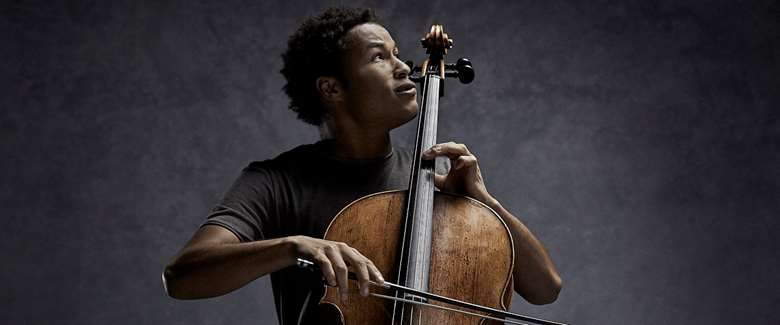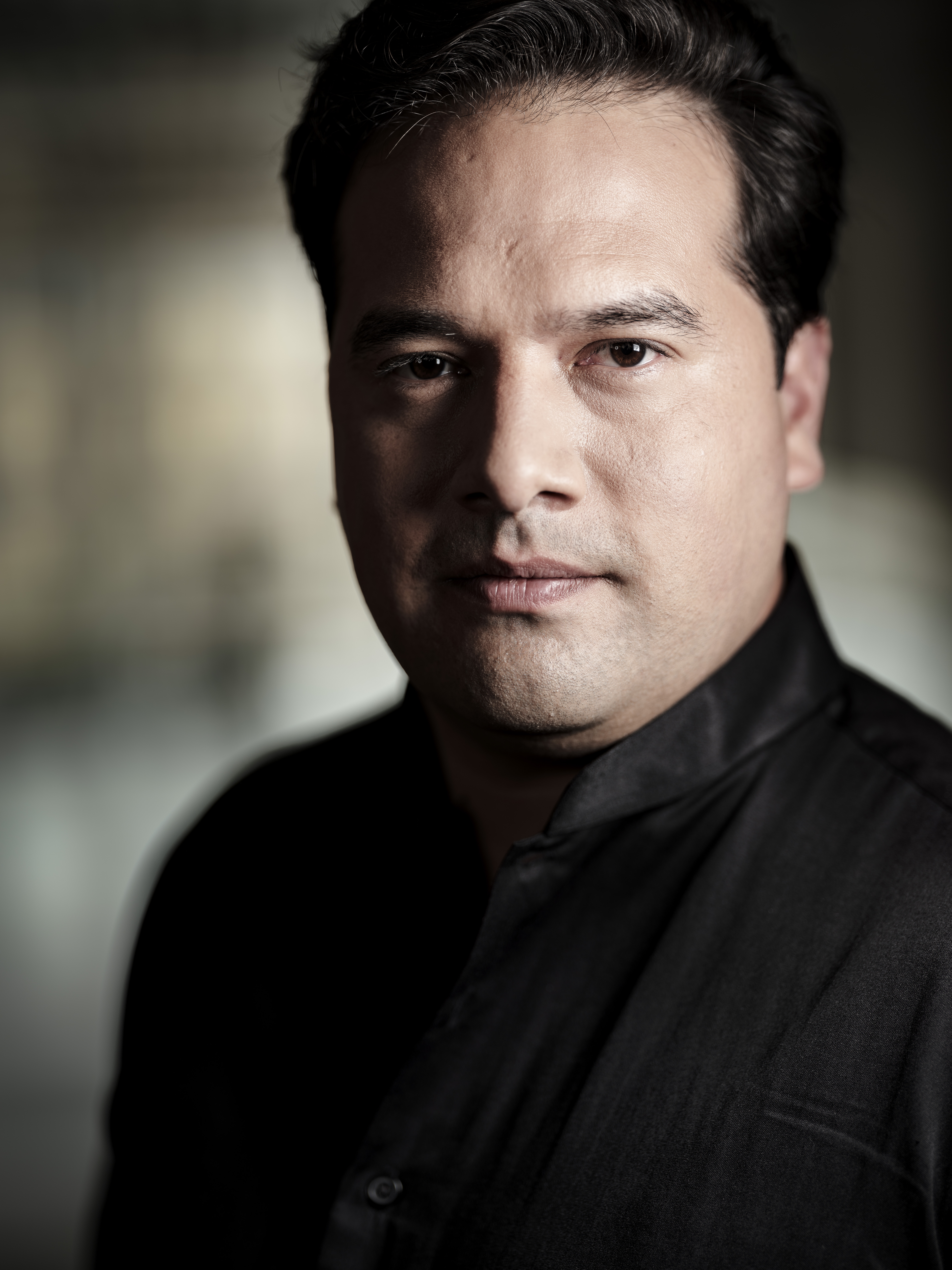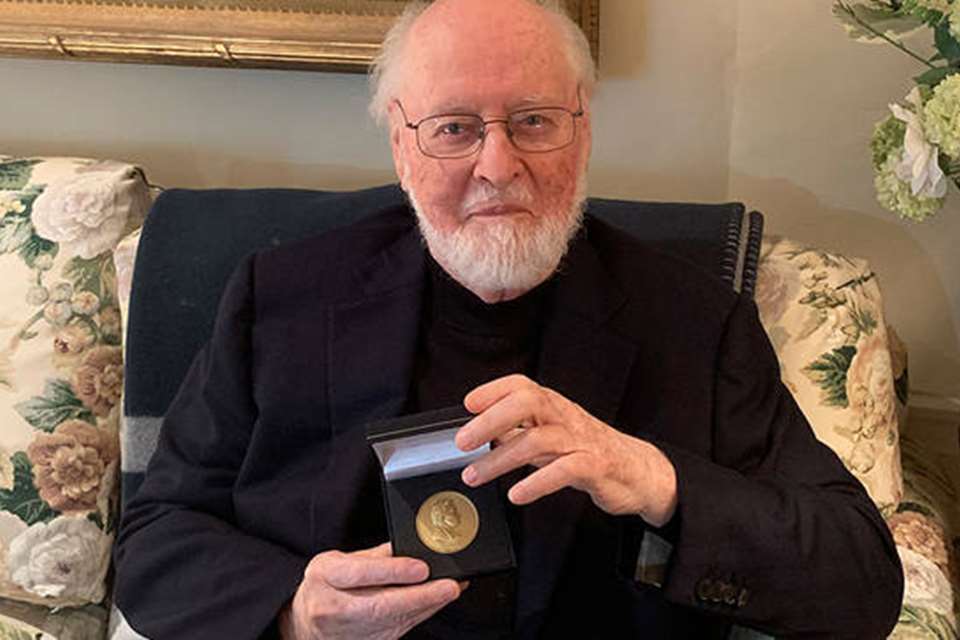RPS 202 Young Artist Sheku Kanneh-Mason: 'I haven't let diabetes affect my career'
Charlotte Gardner
Friday, November 20, 2020
Last year we spoke to Sheku Kanneh-Mason, a recent winner at the RPS awards, about his career so far and how he manages this with Type 1 Diabetes

Credit: John Davis

When nerves and the notes are generally more than enough for any performing artist to be thinking about before they go onstage, especially if they're a young artist with a large proportion of debuts in their concert calendar, 20-year-old Sheku Kanneh-Mason stands out not just for the ever-upwards trajectory of his career since winning BBC Young Musician in 2016, but also for the fact that since he was twelve he's had type 1 diabetes - a condition so significant that, in a bid to do his bit to help, he's just become a Global Ambassador for the type 1 diabetes charity JDRF. Which is how when I came to sit down with him in the Decca offices one morning in November 2019 to discuss the imminent release of his Elgar Cello Concerto recording with Sir Simon Rattle and the London Symphony Orchestra, it was with the surely once-in-a-lifetime brief to cover 'diabetes and Elgar'. Still, when you fully understand the implications of type 1 diabetes, you realise that actually there couldn't be a better moment to discuss it than just before a high-profile album release with its full-on accompanying press and PR schedule; and also indeed on the eve of a two-week December tour of the US with his pianist sister Isata Kanneh-Mason.
Diabetes is a lifelong condition in which the hormone insulin is prevented from breaking the glucose in a person's body down into energy, causing their blood sugar levels to rise too high. The most common variety is type 2 (accounting for around 90 percent of sufferers in the UK), where the body either stops producing enough insulin or its cells just don't react to it. Linked to an unhealthy lifestyle, it tends to happen to happen to older people, and can be kept under control with medicine. Type 1, by contrast, is where the body's own immune system attacks and destroys the cells that produce insulin, meaning that in order to avoid life-threatening glucose highs and lows you have to regularly inject yourself with insulin. Unlike type 2, the causes of type 1 are unknown. Furthermore it can strike at any age. So Kanneh-Mason's JDRF role is a mix of drawing attention and funding towards its international research programme, and simply being an encouraging role model to other young people who have been diagnosed with it. As he says, 'I just want to show them that it hasn't affected me being able to do what I've always wanted to do'.
I just want to show them that it hasn't affected me being able to do what I've always wanted to do
Furthermore, that's when performing musicians do have a very particular balancing act to achieve when it comes to their blood sugar levels. 'When you perform, the adrenalin and energy can bring your blood sugar level down,' explains Kanneh-Mason. 'This means that to avoid having low blood sugars while performing, my levels need to be slightly higher than the ideal range beforehand. To help this, I'll perhaps have just a small snack backstage, just in case, because while I've never had any disasters onstage, if I weren't organised then I could. I've had it when practicing, and the signs are that you start shaking and sweating a bit, your mind goes a bit confused, and coordination can go.'
So if it did happen in a concert? 'I'd stop and explain to everybody, because it would be worse to continue, and after five minutes I'd be alright again,' he says. 'But I prefer to prepare to prevent it! So in terms of what advice I'd give to any performing musician recently diagnosed with type 1, it would be to really take notice of what your own particular blood sugar does when you perform, because not everyone's body will react in the same way.'
Developments in technology are helping with this too, and indeed with particular benefits for musicians. 'I used to have to check my levels by pricking my finger,' he remembers, 'which of course as a cellist is a problem! I'd always at least put it on my right (bow) hand so as not to lose sensitivity, but as of recently I've now got an electronic patch which monitors my blood sugars constantly and reads to my phone, alerting me if my sugar is low.' He lifts up his T-shirt, and sure enough there's a large fabric square on the side of his chest. Next he shows me the graph display on his watch. 'When it's in the grey it's good,' he outlines, 'and what's also useful is that you can see the direction it's going in.'
The direction the two of us now go in, though, is towards the Elgar. 'It's my favourite piece of music, out of any music,' he says with warmth. 'Probably because it was one of the first pieces I used to listen to all the time when I was younger. Particularly Jacqueline du Pré's recording of it, and in general I used to watch the video of her and Barenboim, wanting to copy what they were doing even before I could properly play. Then I've been really working on it myself for the past two years, performing it lots, and while I'm still working on it and discovering more, it's really, really nice to record it.'
Kanneh-Mason's relationship with Rattle meanwhile is much more recent. In fact it began with this recording. However when the collaboration was mooted, and Kanneh-Mason visited him at his Berlin home for a play-through with piano, it was clear that the partnership would work. 'I felt very free and spontaneous playing with him,' he muses. 'I feel best when playing when I feel I can do anything, and anything can come from the other person as well. When you don't feel as though any of it is fixed, but that it's instead more of a conversation in which you can react to each other, and I felt that a lot with him. We played it through I think twice, and the second time it was different - not for the sake of being different, but just in interesting ways. And the orchestra are just amazing, too. They know this piece so well that again it means that I can feel very free.'
